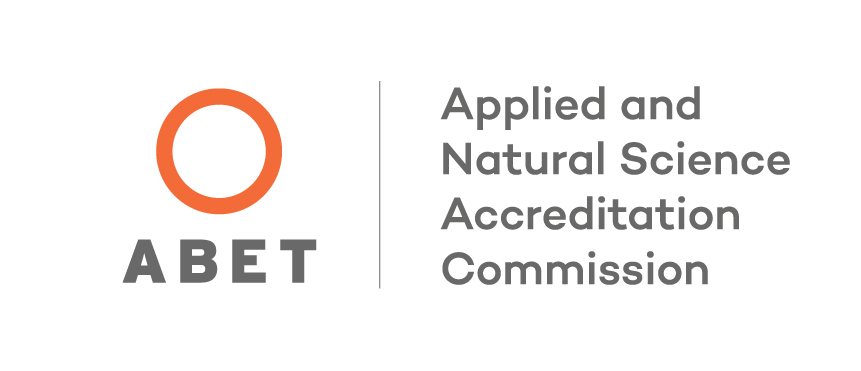Geomatics
The Geomatics program is housed in the College of Science and Technology under the Department of Built Environment and is the only four-year program in geomatics in the state of North Carolina.
Geomatics is a rapidly developing discipline that focuses on acquiring and analyzing precise spatial information. You will be able to study and work in the areas of photogrammetry, traditional land surveying, construction, hydrography, geodesy, geographic information systems (GIS) and forensic surveying.
N.C. A&T's Geomatics program is the only four-year program in North Carolina that prepares students for professional licensure and land surveyor. The program is unique in design, allowing an easy transition for students coming from community college survey and civil technology programs, traditional campus students, as well as providing an opportunity for distance learning through upper-level online classes. The curriculum has an emphasis in the areas of math, science, technology and geospatial analysis. Courses included are land surveying, boundary and survey law, photogrammetry, geographic information systems (GIS), route surveying, automation, geodetic science, global positioning systems (GPS), and adjustment computations.
Geomatics has applications in all disciplines that depend on spatial data, including surveying, civil engineering, Geospatial sciences, geographic information systems (GIS), geodesy, photogrammetry, and remote sensing. It is an integrated approach to the measurement, analysis, management, storage and display of descriptive, geographically-referenced earth-base data. This data comes from many sources including earth orbiting satellites, air and sea-borne sensors, and ground-based instruments.
Apply for our Undergraduate Program(s)
Just in Our Geomatics Program has made this Top 5 Listing for online programs!
https://www.ncat.edu/news/2020/03/online-gis-ranking-2020.php
Accreditation
The Bachelor of Science degree in Geomatics is accredited by the Applied and Natural Science Accreditation Commission of ABET Applied and Natural Science Accreditation Commission of ABET.

| Year | Enrollment* | Graduates |
| 2019-2020 | 53 | 3 |
| 2020-2021 | 69 | 4 |
|
2021-2022 |
69 |
5 |
|
2022-2023 |
54 |
6 |
|
2023-2024 |
61 |
7 |
|
2024-2025 |
60 |
5 |
|
2025-2026 |
90 |
|
The Remote Sensing and Geospatial Science team at the department of Built Environment is seeking highly motivated graduate research assistants to work on the funded projects: Project 1: UAV remote sensing for water quality assessment
Project 2: Geospatial data analytics for food desert mitigation
Project 3: Landslide monitoring and change detection using time-series remote sensing data Qualifications: Applicants for these positions should hold a degree in engineering, geospatial science, computer science, physics, mathematics or related fields. The candidates are expected to be very motivated, work independently while, at the same time, cooperating with the project team. The support for the RAs includes stipend, tuition/fee, and conference allowance. For inquiries, please send an email to lhashemibeni@ncat.edu.
The mission of the Bachelor of Science program in Geomatics is to encourage our students to use their educational experience and discipline-related knowledge to work productively and efficiently in their area of expertise as well as contributing to the safety and protection, welfare and quality of life of mankind and the community.
See Accreditation Information (Student Outcome Information for ABET, and SACs)
Program Educational Objectives
- Employment and Career Advancement: Graduates will be gainfully employed in the Geomatics profession and will have passed the Fundamentals of Land Surveying exam.
- Professional Certification: Graduates will continue their educational efforts through industry experience in their continual pursuit of obtaining professional licensure.
- Continuing Education and Adaptability: Graduates will continue to learn and adapt to changing technologies, procedures and concepts.
- Leadership and Community Service Graduates will demonstrate the knowledge, skills and abilities necessary to function effectively in roles of leadership and service in the communities where they live and work.
- Graduates will promote the Geomatics profession: by being actively involved in their state societies and professional organizations to advance and facilitate effective change in the Geomatics profession.
Program Specific Student Outcomes (Aligned with ABET student learning outcomes)
- An ability to identify, formulate, and solve broadly defined technical or scientific problems by applying knowledge of mathematics and science and/or technical topics to areas relevant to the discipline.
- An ability to formulate or design a system, process, procedure or program to meet desired needs.
- An ability to develop and conduct experiments or test hypotheses, analyze and interpret data and use scientific judgment to draw conclusions.
- An ability to communicate effectively with a range of audiences.
- An ability to understand ethical and professional responsibilities and the impact of technical and/or scientific solutions in global, economic, environmental, and societal contexts.
- An ability to function effectively on teams that establish goals, plan tasks, meet deadlines, and analyze risk and uncertainty.
The Bachelor of Science in Geomatics allows the student to understand and analyze data relevant to the shape, contour, gravitation, location, elevation, or dimension of land on or near the earth's surface. Maintenance of GIS systems, survey crew management, boundary and roadway design are all projects for a geomatics expert.
Careers
Civil Engineering Technician
Avionics Technician
RF Engineering Technician
Biomedical Electronic Technician
Electronics Technician, Radar
Earning Potential
Total incomes of graduates in geomatics may include managerial salary, bonuses and profit sharing. Location is the largest factor affecting pay followed by experience level. Salary Range: $45,000 to $71,500
For more information please email Dr. Jerry Nave at jwnave@ncat.edu


